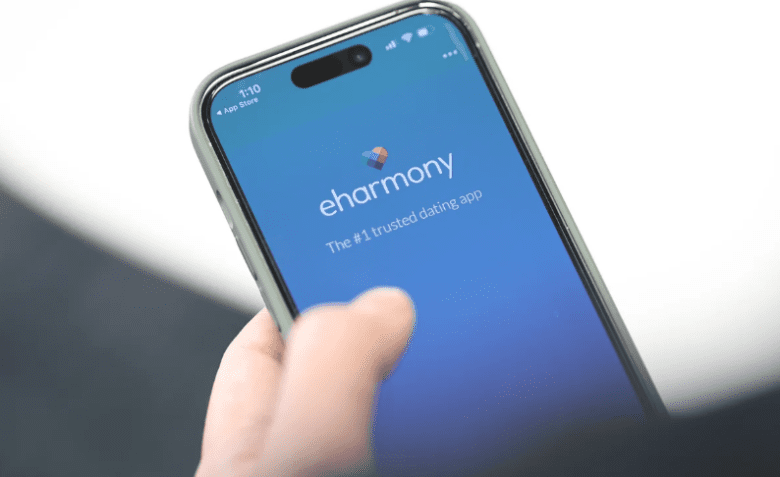Australia’s Watchdog Takes Online Dating Site eHarmony to Federal Court: ACCC Alleges Misleading Subscription, Membership, and Cancellation Practices in Landmark Case
In a move that has rattled the online dating industry, the Australian Competition and Consumer Commission (ACCC)has taken legal action in the Federal Court against eHarmony, one of the world’s leading dating sites. This high profile case centers on allegations that eHarmony engaged in misleading conduct related to its subscription structure, renewal policies, and membership pricing.
This article will dive deep into the claims, outline the legal implications, and help you understand how to protect yourself from subscription traps, whether you’re just looking for love or already paying for a premium online service.
Why the ACCC Is Suing eHarmony: Allegations That Matter
The ACCC alleges that eHarmony Inc., a US-based company, misled Australian consumers by promoting and managing its subscription renewals in a misleading. Specifically, it is alleged that eHarmony Inc. failed to present automatic renewal options clearly, did not disclose the total cost upfront, and gave a false impression of free services.
How Renewal Terms Were Hidden From Users
According to the ACCC, many consumers could not have reasonably understood the terms of the subscription due to how the information was presented during the purchase process. In some cases, members were unknowingly enrolled into 12 month auto renewing plans after initially subscribing for just six months.
Worse, the renewal terms were embedded in small font and were not highlighted during checkout. In some cases, this meant consumers were charged hundreds of dollars without clear consent or prior notice. The platform claimed to notify users, but the ACCC believes this marketing practice was inadequate and misleading under Australian law.
The Myth of “Free” Dating on eHarmony
eHarmony represented itself as a free platform, inviting users to subscribe to a basic plan with promises of meaningful interactions. But the reality, the ACCC alleges, is far from that.
What You Get With a Basic Membership
With a basic membership, users could not initiate meaningful connections. Features were heavily limited, including:
- Viewing only blurred profiles
- The ability to send just one message
- No ongoing chat unless upgraded
- Access to “icebreakers” but not replies
Effectively, dating was only possible with a paid premium plan. The watchdog claims this discrepancy amounts to deceptive conduct, arguing that eHarmony’s “free dating” was just a lead-in to subscribe to a costly, long-term plan.
Pricing Practices Under Fire: Hidden Costs and Confusing Monthly Fees
The ACCC further claims that eHarmony’s displayed pricing—such as “from $xx/month”—was misleading. The advertised price failed to include key details like fees for paying in monthly installments instead of one upfront payment.
The “From $xx/month” Trap
One customer believed they were signing up for a $39 per month plan. After selecting a monthly payment option, a $3 processing fee was added each cycle. However, these charges were only disclosed via a tooltip or small print.
This marketing practice left users with a total payment they hadn’t anticipated, a violation of Australian consumer law that requires companies to clearly show full costs before the purchase is completed.
The Cancellation Controversy: Could You Really Cancel?
The site’s terms and conditions suggested users could have second thoughts and cancel their subscription, but in reality, eHarmony refused to issue refunds for unused time. This added to the mounting complaints.
In one case, a user canceled within a few days but still received threatening emails from debt collectors because the platform considered the full duration binding once a purchase was made.
The ACCC argues that users were misled into thinking they could cancel and that cancellation would release them from financial obligation, which it did not.
The Role of the ACCC: Protecting Australian Consumers in the Digital Economy
The Australian Competition and Consumer Commission has made compliance and enforcement priorities in the digital economy, particularly where online subscriptions and recurring charges are involved.
Chair Gina Cass-Gottlieb emphasized:
“These are personal services. Consumers are in a vulnerable emotional state when using dating sites and may not scrutinize the terms as they would in a commercial transaction.”
The watchdog is not only focused on eHarmony. This proceeding is part of a broader strategy to crack down on unfair practices across all apps, platforms, and websites operating in Australia.
What This Case Means for Dating Site Users and the Industry at Large
A Wake Up Call for Online Dating Platforms
The court case against eHarmony could set a precedent, forcing online dating platforms to overhaul how they present subscription offers, highlight automatic renewals, and disclose full costs.
Should the ACCC win, companies across the digital landscape may need to:
- Offer clearer subscription renewal notices
- Highlight fees in large, readable text
- Ensure terms and conditions are genuinely accessible before checkout
How to Protect Yourself as a Customer
Here are practical steps you can take to avoid falling into similar traps:
- Look for any mention of automatic renewal in the terms and conditions
- Avoid platforms that don’t disclose total pricing up front
- Use pre-paid credit cards or temporary cards to avoid unexpected charges
- Screenshot every step of your purchase process
By staying alert, consumers could avoid the same financial pitfalls that have led many into subscription nightmares.
Final Verdict: Will This Be the Case That Changes Online Dating Forever?
While the proceeding is ongoing, this court battle could become a landmark case in Australian consumer law. The legal pressure on eHarmony Inc. has already raised questions across the online dating industry about the ethical boundaries of marketing practices, subscription traps, and automatic renewals.
For consumers, this is a moment to be aware, to question what you’re signing up for, and to demand transparency. For companies, it’s a wake-up call that vague terms and blurred disclosure are no longer acceptable.
FAQs
Q: Is eHarmony really free to use?
A: While the basic version of eHarmony is technically free, it severely limits interaction, making true dating impossible without a paid subscription.
Q: What is the ACCC alleging against eHarmony?
A: The ACCC alleges that eHarmony misled users about pricing, subscription renewals, cancellation options, and the scope of free services.
Q: How do I cancel my eHarmony subscription?
A: Users must manually turn off auto-renewal in their account settings before the next billing cycle. Cancellation does not guarantee a refund.
Q: Can this case affect other online services?
A: Yes. If the ACCC succeeds, it could reshape how all digital economy platforms handle recurring subscriptions in Australia.



